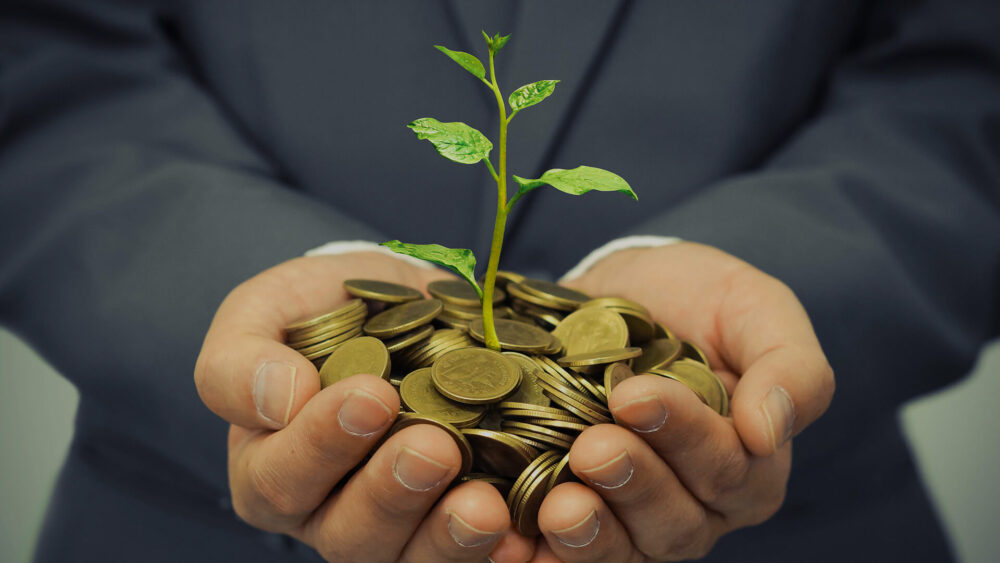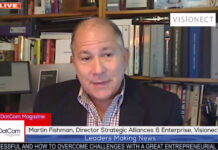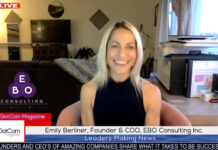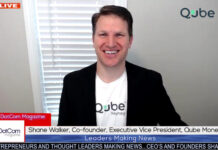There is a 99% chance your business is a SME (small to mid-sized enterprise). It is a business with under 500 employees. When you add all the world’s SMEs together, they employ 67% of the world’s employed workforce. They run the world economy.
Now let’s define ‘Corporate Environmental Sustainability’ We define it as “Maximize performance and return…without compromising the environment or future generations…via continuing improvement of awareness, health, operation and efficiency of the organization…and promotion of sustainability certification and performance achievements and successes to all internal and external stakeholders.” – Edenark Group
Turning back to your business, what does it need most?
Answer: According to studies, the #1 thing all businesses (no matter their size or where we are in an economic cycle) need is competitive differentiation – standing out from your peers and convincing the prospect to buy from you versus the other guy.
So, if all businesses have the same problem, do all businesses approach competitive differentiation the same way?
Answer: No. Although all companies suffer from the same problem – competitive differentiation / getting the consumer to buy from you versus the other guy. SMEs have a harder time with it. Big companies are marketing-centric. They have $$$’s to create branding and advertising. SMEs are more sales-centric and more dependent on face-to-face selling. They don’t have big budgets, to create brand imagery. Their ‘brand’ is typically individuals. They are far more dependent on personal interaction, face-to-face selling, pressing the flesh.
But what has the internet created…and Covid-19 accelerated?
Answer: The internet has created a platform for consumers to pre-review your company without your active input. Go/no decisions are being made based on perception of satisfaction of need. These decisions are being made before you can have a face-to-face. This was already occurring, but Covid accelerated it.
And what is the top thing consumers are looking for and that companies can differentiate by having?
Answer: Sustainability certification. Corporate sustainability searches are up 800%. 9 out of 10 consumers want you, a candidate for their business, to be certified sustainable; and 7 out of 10 will move their business from you to a certified sustainable company if they find one.
This translates to +$2 TRILLION in consumer spending LOOKING to move to certified sustainable companies.
So, why not put “We are sustainable” on your website?
Answer: It would do more damage than good. +70% of consumers disbelieve a company that makes claims that are not verified/certified by a legitimate 3rd party. Yet, +70% of all consumers believe a company that makes claims that are verified/certified by a legitimate 3rd party.
You want to be ‘certified’ sustainable to be believable.
This brings us to the obvious question of – How are certified sustainable SMEs that promote their certification as a differentiation tool performing against their non-certified competitive peers?
Answer: They are growing dramatically faster. Studies show +75% overall growth (some studies go as high as 700%); +67% investor ROI; +24% Net Income; +15% sales gains; +11% EBITDA for certified sustainable companies versus their non-certified competitive peers.
So, in summary, is Sustainability Certification worth considering?
Answer: Yes! If 9 out of 10 consumers want you to do it….it is a good thing…and you will differentiate and make more money…it might be worth checking out.
So now what?
There are over 400 sustainability certification programs in the world. What is right for your company?
Below are the eight components you should look for in a sustainability certification program.
1 – Employee Performance/Health Enhancement – Sustainability is not just about energy savings or Greening Up. It is about people, and how people grow and prosper in the environment, without destroying the environment. If a program, claiming to be a sustainability certification, does not have a ‘people piece’ that can quantify improvement in the performance and health of the employees of the business, it is not a true sustainability program. Every organization in the world suffers from the Big 5 – employee insomnia, stress, anxiety, physical pain, and mental acuity. Studies show the cost of the Big 5 to US organizations is $7,000 – $12,000 in lost sales per year, per full time employee. Similar studies have been conducted, with similar results, in Canada, Great Britain, Germany, Australia, Japan and France. Net, if you have 100 employees, you are losing $700,000 – $1,200,000 per year, due to employee insomnia, stress, anxiety, physical pain and mental acuity. It takes a lot of LED light bulbs to recover that loss. Net, we start with this point, as it typically has the biggest economic impact on an organization.
2 – Certify the business, not the box – People care about things that affect people. Building-centric certifications care about the energy reduction of the building (ie, box); but are not interested in what goes on inside the box, which is what people care more about. This includes things like people (mentioned above under #1), water, waste, safety, community, vendors, clients, et cetera. Further, and this is where the revenue-side benefits of a true sustainability program can start for you, building-centric programs are hard to promote and tie to sales/revenue. It is hard to grow sales by saying “Buy more of my product as I office in an energy efficient building.” But, with a true sustainability (including people as discussed in #1) certification of your business, that statement becomes “Buy more of my product as it is made by a sustainable company”. This is what we are seeing people respond to – the direct connection between an organizational entity (the brand) and positive impact on people.
3 – 3rd party audit – Regardless of the industry, any certification or accreditation program must have a 3rd party audit process to maintain credibility. Just like when you were in school and needed to pass the tests, which were reviewed/audited by your teachers, to get credit for the class; there needs to be an independent party that verifies if the organization pursuing/receiving the certification, truly did the things it claimed to have done. Without this, an organization can make exaggerated claims and the certification loses credibility and value to the marketplace.
4 – Use a respected and integrated global standard to maximize credibility – The sustainability industry is maturing and coalescing around a few key standards that cover sustainability certification, carbon neutrality, UN SDGs, and ESG planning. If you want to maximize the market’s positive response to your organization’s receipt of a sustainability certification, select a standard that is globally known, respected and integrated into all the programs and protocols the world is following.
5 – Promotion of the certification – Many people in the sustainability industry follow the 3 Ps of sustainability – People, Planet and Profit. To that, we add ‘promotion’ (ie, People, Planet, Promotion and Profit); because if you don’t talk about it, all those people looking for certified sustainable companies will not know about your certification. So, when you are selecting a sustainability certification program, and you want to benefit on the revenue-side of your P&L, pick a program that recognizes the promotional value of being certified sustainable and incorporates promotion into its service to help you maximize your differentiation and revenue-side benefit.
6 – Continual improvement – Some programs establish a very high initial bar. These can be expensive, time-consuming, frustrating and, in many cases, unattainable. It is hard to get people to change. It is even harder if you set the bar too high, as it will scare them. So, find a program that lets you come as you are; and follows the concept of continual improvement. This will allow your organization to start from wherever it is, move at its own pace, achieve goals, enjoy the process and start believing in the benefit of always striving to be a little bit better. Like the tortoise and hare, it may take you a bit longer to see big changes, but you will have more stamina for the long-term goal of changing attitudes and behaviors.
7 – Annual update – This gets back to the progressive improvement point. Sustainability should not be a static process; it should be a continual process. No matter where an organization starts, it can always seek to improve. Every year, we want to find new areas to improve. So, every year, you need to get a little better and your certification needs to reflect that, inclusive of the audit to verify same.
8 – Cost – Yes, we could have started with this, as cost is always a factor. But, we end with it, as the above define the value you are seeking. Then, the components of your cost include a) the money you pay for the certification; b) the money you pay for the improvements to qualify for the certification; c) the cost of the audit (if it is a legitimate program); and d) the cost of your staff’s time. You need a certification program that delivers on the above seven points without crashing on any of the four components of cost.
The good news is there are sustainability certification programs that deliver on all eight of the above points. If you follow this guide, you will find a program that you should be happy with.
You will be doing the right thing for the environment.
Your staff will be happier, healthier and more productive.
Your costs will go down.
You will be differentiating your company from its peers, which will have a positive impact on your brand and sales effort.
And, the entire program will be affordable – both in cost and time.
About the author:
David Goodman is the CEO of Edenark Group (https://edenark.com/ ), the world’s premier environmental sustainability certification / carbon neutral / ESG planning program for SMEs (small to mid-sized organizations).



















